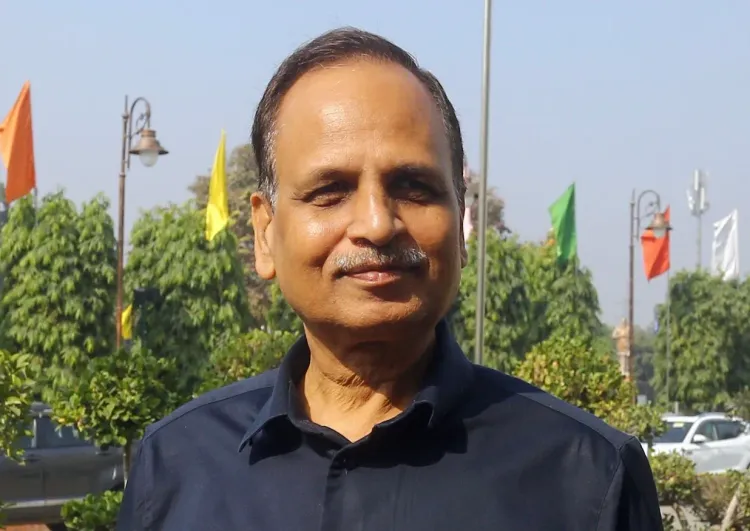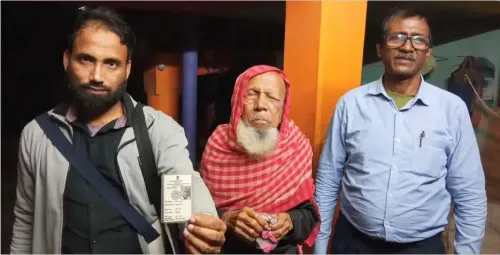Is the PWD hiring case a big relief for Satyendar Jain as Delhi court accepts CBI closure report?

Synopsis
Key Takeaways
- The Delhi court accepted the CBI's closure report regarding Satyendar Jain.
- No incriminating evidence was found against Jain.
- Corruption charges could not be substantiated under the Prevention of Corruption Act.
- The CBI acknowledged no loss to the Delhi government from the hiring decisions.
- The ruling highlights the importance of evidence in legal proceedings.
New Delhi, Aug 4 (NationPress) A significant development for former Delhi Minister and AAP leader Satyendar Jain occurred as a Delhi court accepted a closure report submitted by the CBI concerning the allegedly improper hiring of consultants in the PWD department back in 2018.
Special CBI Judge Dig Vinay Singh acknowledged the closure report, stating, "Further proceedings would serve no useful purpose." The court, however, permitted the federal investigative agency to pursue further inquiries if new evidence arises.
The court remarked, "In light of the circumstances presented, in the absence of evidence and sanction, the final report for closure of the FIR is accepted."
The Special Judge concluded that despite an extensive investigation, no incriminating evidence was uncovered to substantiate corruption allegations under the Prevention of Corruption Act, 1988 or any other legal provisions.
The CBI acknowledged in its closure report that no prosecutable evidence was found and made two pivotal observations: no evidence could be linked to Jain, and no financial loss was inflicted on the Delhi government due to decisions made during the recruitment process.
The complaint, lodged by the Delhi government’s Directorate of Vigilance, centered on the allegedly improper hiring of a creative team of consultants by PWD officials and Jain.
Following the closure report, the court asserted that not every decision made in an official capacity, even if they might deviate from strict regulations, deserves scrutiny under corruption laws.
"There must be some evidence to validate the application of the provisions of the POC Act, 1988," the court remarked, adding that there was insufficient evidence to invoke laws related to criminal conspiracy.
The court emphasized, "The law clearly states that suspicion cannot replace proof. Moreover, to charge someone, mere suspicion is inadequate; at least strong suspicion is required to proceed."
The primary allegation involved Jain approving the hiring of a 17-member team of consultants for the PWD through outsourcing, which allegedly sidestepped standard government hiring procedures.
The CBI claimed that irregularities in the recruitment process could indicate criminal conspiracy and corruption, including altering eligibility requirements in the Notice Inviting Tender (NIT) for a private company and unauthorized budget allocations.
This ruling provides significant relief for Jain, who is currently out on bail and facing multiple cases related to corruption and money laundering associated with disproportionate assets, classroom construction, CCTV installation, and sewage treatment plant upgrades.










